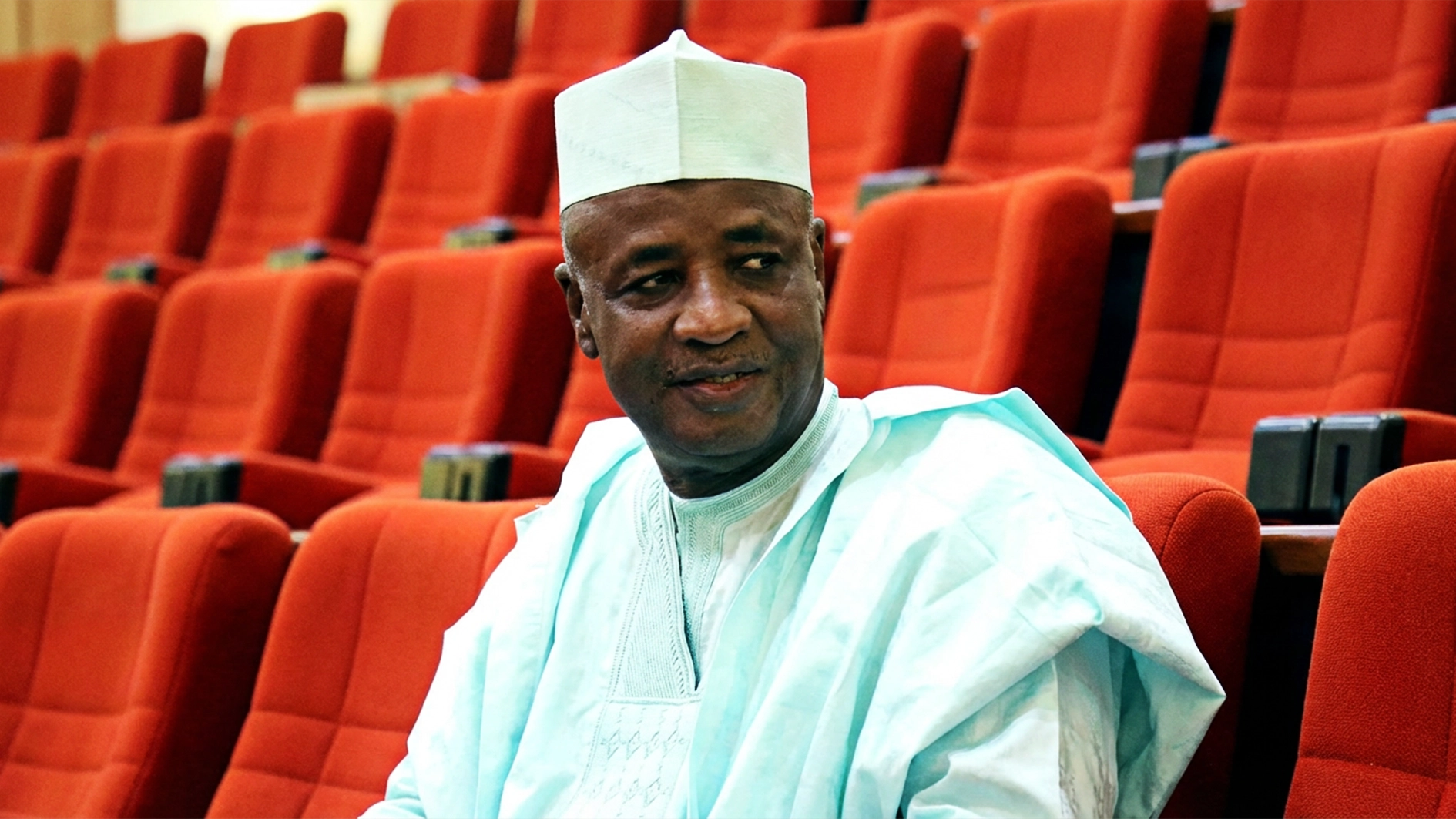
As Nigeria grapples with many crises and issues, a Professor of Sociology, Lai Olurode, has said that the family is at the root cause of the problems and the path to solving them.
According to Olurode, the path to Nigeria’s greatness is embedded in strong families with sound ideologies that are products of a rigorous
socialisation regime.
He added that for there to be a formidable national society, the average family must be strengthened both materially and in ideologically terms.Olurode said this at the marriage ceremony between the daughter of Alhaji Hakeem Alimi and Alhaja Rabiat Folasade Alimi; Hafsah, and son of Mallam Yusuf Bako and Alhaja Rafatu Bako; Tolut. He maintained that building a strong family in the country cannot be left to individual families, but taken as a national project.
“Individuals are recruited into governance architecture from families. If these individuals are clueless or are wrongly oriented, these are the values they will bring to bear on public policies at the national level, should they be recruited into the national society.
“The situation in which Nigeria has found itself today is simply a product of families that had lost focus and bearing or where coherent social values have either not been inculcated or have been rejected by the younger generation,” Olurode said. He added that the national project may be in jeopardy in a society where the family institution is in disarray or dislocated on a large scale.
“A national family policy is hereby being advocated in order to build a strong country under conditions of diversity. Every family must be supported to meet basic family obligations of character building, moral training, schooling, skill acquisition and respecting the rights of other citizens,” he noted.
He also stated that couples have a strong role to play, stressing that they must regard marriage as part of the long process of building a national and global peaceful society.
“Marriage and love are universal phenomena. Courtship is also commonplace. Forced marriages are frowned at in this generation. Of course, there are ways of establishing implicit consent.
“Marriages across ethno-religious and socio-economic lines do take place. It is often said that love is blind. Divorce is equally universal though, it is procedural as marriage. Indeed, it is through love, marriage and family formation that new births are added to the population of communities and nations.
“In national, regional and global politics, population’s size counts a lot. A country with a large size of human population commands respect as potential source of market. If the population is educated, the respect is more. The family is the smallest social unit in society. It is into a family that big and small men of today are born into, the same with law abiding citizens and criminals.
“For there to be a formidable national society, the average family must be strengthened both materially and in ideological terms. There might have been some children that are abandoned or neglected from birth but they are few. The family is central to our experience and existence. It is from the family that individuals are recruited into the different sectors of society,” he said.
Olurode stated that in every human society, marriage is simultaneously a private and a public event often guided by an elaborate set of customs and traditional rites.
“There are also expectations that flow from the institution of marriage. Except for celebrities, marriage dissolution does not draw a crowd as large as the initial marriage. Divorce, which may sometimes become inevitable, is often executed secretly.
“The presence of big and small elites and an array of family members at marriage events underscore its significance and a public testimony to its validity. Heads of state and governors among other highly placed government officials use marriage occasions to cement damaged or ruptured socio-political and economic relationships. Marriage platforms serve other purposes,” Olurode explained.
The university don observed that without marriage and its guidelines, indeed without biological reproduction, society would cease to exist and human civilisation will come to an end.
“In our society, deviant forms of sexual orientations are frowned at – lesbianism, gays, bi-sexual, transgender and inter-sex – LGBTI. Some countries regard marriage as so important to the extent that the institution is subsidised and may be sponsored by the state with fanfare, so that none who is of age would stay out of marriage on grounds of poverty.
“Some social organisations and philanthropy minded individuals do also subsidise marriage as well. The support could be in cash donations or gifts of cooking utensils or clothes or even payment of rents. These diverse interventions may help to reduce instances of promiscuity in society,” he noted.
He further said that societies that have overregulated production of human beings are now restrategising to address the phenomenon of under-population and its evils even with all the promises of robotics engineering.
“Before they can become assets to families, communities, the larger society and even the global society, appropriate ethics and social values must have taken place under a rigorous socialisation regime.
“Where this fails and the right values weren’t inculcated in the younger generation, social direction is traded off. If this is the experience of most families, then, social decay sets in. Where this is the case in many families, social degeneration is the final outcome. A society that has chosen this path may go into extinction.
“Where the right orientation through socialisation fails to be charted at all levels of socialisation, the society and the country may go under socially and in other spheres. Why do I conjecture this frightening prospect?
“Individuals are recruited into governance architecture from families. If these individuals are clueless or are wrongly oriented, these are the values they will bring to bear on public policies at the national level should they be recruited into the national society.
“The situation in which Nigeria has found itself today is simply a product of families that had lost focus and bearing or where coherent social values have either not been inculcated or have been rejected by the younger generation.
“This may sound pedestrian – a society where the family institution is in disarray or dislocated on a large scale, the national society project may be in jeopardy. When marriages fail, the effects aren’t just on the couples but other significant members around them.
“However, individuals aren’t expected to remain in marriage at the expense of their welfare and wellbeing. The concerned must muster the strength and courage to jump out of the window before the apartment is set ablaze by an irrational spouse,” Olurode added.
He observed that at present, the school system or the religious institutions which impact on early child and even adult socialisation reflects no coherence in inter-institutional connect and collaboration.
“Indeed, building a strong family in our country cannot be left to individual families. It is to be looked at as a national project. Even with the Japa phenomenon, fleeing individuals have national identities. Without proper home training, coping in other territories and respecting their laws may be difficult. A national society is an agglomeration of different and disparate families.
“A national family policy is hereby being advocated in order to build a strong country under conditions of diversity. Every family must be supported to meet basic family obligations of character building, moral training, schooling, skill acquisition and respecting the rights of other citizens,” he advised.
According to Olurode, couples must see their marriage as part of the long process of building a national and global peaceful society. He noted that although it might be challenging, they must make it to work for themselves, their children and the larger society.
Speaking specifically to the new couple, he said: “The two of you are from different backgrounds, so, tolerate each other as you negotiate and re-negotiate the definitions and re-definitions of new realities.
“Don’t keep your parents out of your marriage. Consult them as may be necessary. Trust each other. Your parents and dependable relatives are part of your pillars of support. Remain prayerful and fear Allah in all your actions.” Olurode commended the couple for being patient in undergoing the travails of child upbringing for the past couple of years of their life.
“They allowed their parents to celebrate them today. Not all children concede this right to their parents. They could have chosen other paths to getting married,” Olurode said.






